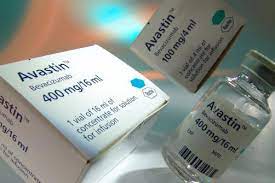Although bevacizumab is very effective in the treatment of breast cancer, it also has its risks. The drug is a powerful immunotherapy and can cause severe side effects. The most serious side effects include chest pain, rapid heartbeat, and signs of heart failure. Some people may experience difficulty urinating and other kidney problems, which can make bevacizumab dangerous. Infusion reactions can cause difficulty breathing, nausea/vomiting, shaking, and chest pain.
This medication can be harmful if taken in large doses for a long period of time. There is a risk of bleeding in the gastrointestinal tract or brain. It may also cause slurred speech and vision or balance problems. In addition, it should not be taken more than 28 days before or after a major surgery. It can interfere with other drugs and cause complications if you take them together. Be sure to follow your doctor’s instructions to avoid any possible side effects.
When used in combination with other chemotherapy drugs, bevacizumab may cause serious side effects. The most common side effects of bevacizumab include slurred speech and diarrhea, as well as flu-like symptoms. Some people may experience vomiting and stomach or intestinal bleeding, or even perforation. Because bevacizumab can cause a variety of adverse effects, it is vital to discuss these risks with your healthcare provider before beginning treatment.
Bevacizumab can cause serious side effects, including seizures and blood clots. However, it is relatively safe, and the side effects are generally mild. If you do experience any, you should immediately contact your healthcare provider and get medical advice. You should continue using bevacizumab even if you become pregnant or become breast-feed. It is recommended that women not breast-feed while using bevacizumab.
Bevacizumab is a type of chemotherapy that is given through a drip. A nurse will insert a thin tube into your vein and connect it to a central line. A central line is a long, plastic tube that gives drugs directly into a large vein. A central line is placed in the arm or chest for a few months. The first dose is administered over 90 minutes, followed by a second one 60 minutes later.
In studies with bevacizumab, you should only take it when the symptoms of your cancer are serious. Your doctor will give you the drug if you do not respond to it. Its main uses are for treating certain types of cancer. You should consult your doctor if you think you have any side effects. If you’re unsure about your medication, talk with your doctor. Be sure to mention any side effects to the Medicines Health and Regulatory Authority, which will investigate the cause and severity of your symptoms.
Because bevacizumab can cause liver and GI side effects, it should only be used in patients with certain types of cancer. It’s a powerful immunotherapy drug that has been approved for use in treating glioblastoma and hepatocellular carcinoma. It has been shown to be effective in the treatment of non-small-cell lung cancer. Its side effects are usually minor and will resolve within a few months.
Bevacizumab can cause several side effects and is usually prescribed by a physician who specializes in cancer. It can be used in combination with other treatments to treat advanced cancer. It is a very effective treatment for ovarian and fallopian tube cancers. It is also being studied for treatment of other types of cancer. While bevacizumab is not used in a small percentage of cases, it has been approved for the treatment of a number of types of tumors.
Despite being used for cancer, bevacizumab can also have side effects. Symptoms include headaches and blurred vision. The drug has a 20-day half-life in adults and about 12 days in children. As an intravitreal injection, bevacizumab has a short elimination half-life of about five to ten days. Infusions with bevacizumab can cause GI fistulae and arterial and venous thrombotic events.
Despite the effectiveness of bevacizumab, the drug is not without side effects. It may affect the immune system, and may cause a patient to develop a fever. Bevacizumab is a type of immunotherapy. It works by blocking the receptor of cancer cells. As a result, bevacizumab blocks the growth of cancer cells. This helps the body fight the disease.




